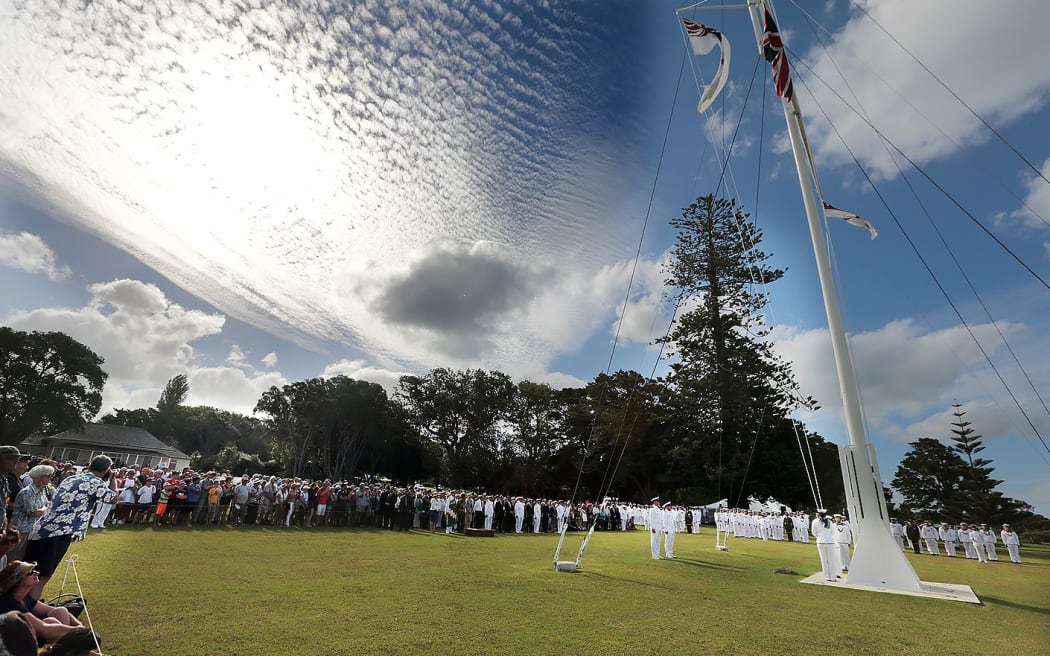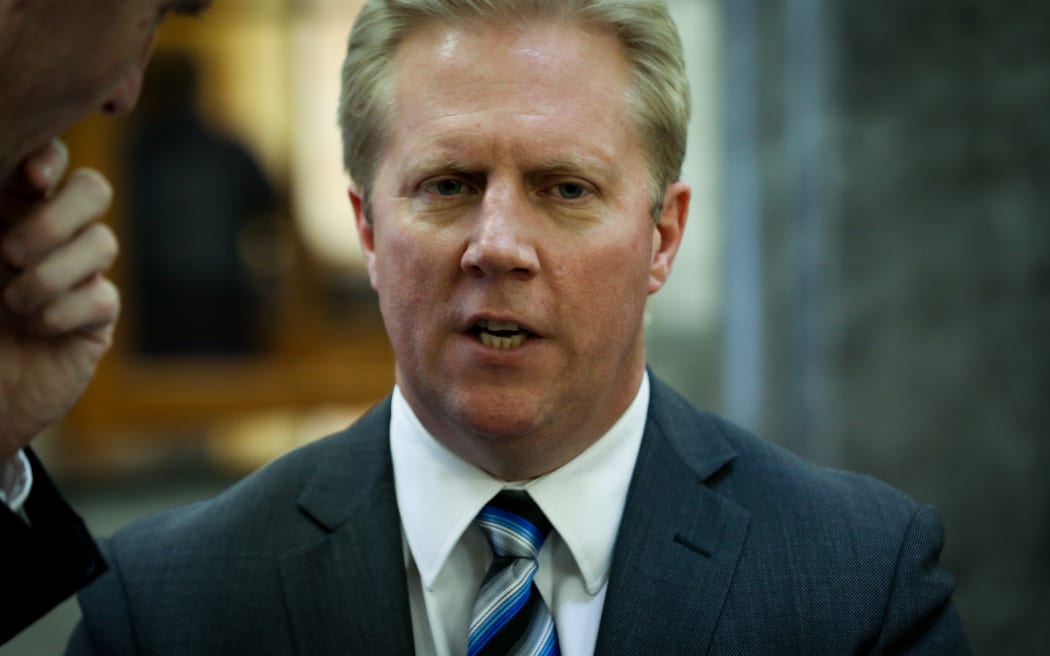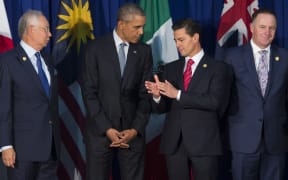A lack of consultation with Māori over the Trans-Pacific Partnership (TPP) deal has been blamed for tension that threatens to affect Waitangi Day.

A file photo shows commemorations at Waitangi on 4 February 2015. Photo: RNZ / Diego Opatowski
The government has confirmed the TPP will be signed in Auckland on 4 February - two days before Waitangi Day.
The confirmation comes as research on the trade deal by senior law lecturers argues it fails to meet obligations to Māori and conflicts with the Treaty of Waitangi.
The government has said the TPP would add at least $2.7 billion a year to the New Zealand economy by 2030.
However, the figures haven't managed to gain support amongst iwi and hapū across Aotearoa.

Te Runanga o Te Rarawa chairperson Haami Piripi Photo: RNZ / Lois Williams
Te Runanga o Te Rarawa chairperson Haami Piripi said a lack of consultation had made many Māori suspicious and he got more information about the trade deal from Australia than from New Zealand.
"It does worry me, it worries us, when you're not considered safe enough to share information with - and there, once again, suspicion arises as to things that have been agreed and done that may not be to our benefit."
Mr Piripi said some business-savvy iwi could see the possible benefits of the deal but others were not in that sphere.
"At one end, we have part of us that are actively involved in our post-modern capitalism economy and at the other end we have largely impoverished communities who are struggling to survive, and there [is] nothing more than a promise of a trickle down.
"From my point of view and iwi point of view, it needs to be better than that."
TPP won't meet obligations to Māori - report
A report by senior law lecturers has argued the TPP would fail to meet obligations to Māori and conflict with the Treaty of Waitangi.
One of the report's authors, Andrew Erueti from Auckland University, said the government had breached the UN Declaration on the Rights of Indigenous Peoples.
"The UN Declaration on the Rights of Indigenous Peoples requires that there be meaningful engagement and, where it might be significantly impacted by any proposal, their free, prior and informed agreement.
"At the very least, in relation to the TPPA, the government needed to fully engage with Māori and ensure that their views were incorporated into any decision-making. That has not happened," he said.

Trade Minister Todd McClay Photo: RNZ / Alexander Robertson
Trade Minister Todd McClay said in a statement nothing in the TPP prevented the Crown from meeting its obligations to Māori and it included a specific provision preserving the pre-eminence of the Treaty of Waitangi.
Mr Erueti remained concerned about the text. "It's really the Crown's construction about what is a treaty interest, and I think we've seen in the past that can work against Māori."
He said the handling of foreshore and seabed legislation was a classic example.
"There wasn't a significant treaty interest for Māori in the Crown's view and legislation was passed in haste and without their full participation, and we ended up with legislation that the UN condemned as being racially discriminatory."
Another one of the report's co-authors, Victoria University law lecturer Carwyn Jones, said Māori already had a hard time engaging with the government on areas such as the environment and intellectual property, and the TPP would only make that worse.
"Māori have long-standing concerns about law and policy relating to issues such as traditional knowledge, biodiversity and environmental management," Dr Jones, who wrote that section of the paper, said.
"The TPPA will hamper the ability of future governments to develop Treaty of Waitangi-consistent law and policy in these areas.
'It is extremely disappointing that the government would enter into such an agreement without securing effective protection for Māori , which the 'Treaty of Waitangi Exception' fails to do."
'Hard to develop a sense of trust'
Mr McClay said Māori stood to benefit from the tariff savings under the TPP in key export sectors such as forestry and seafood.
Mr Piripi said he believed the issue was one of trust - not numbers.
"Trust is a rare commodity amongst Māori when it comes to the delivery by a central government towards outcomes that meet our needs, so it's hard to develop a sense of trust based on a track record of broken promises."
"I imagine it's a worry for most New Zealanders because it runs against the grain of the New Zealand psyche to agree to something without knowing what it is."
The Waitangi Tribunal will hold an urgent hearing in March to discuss the TPP.





